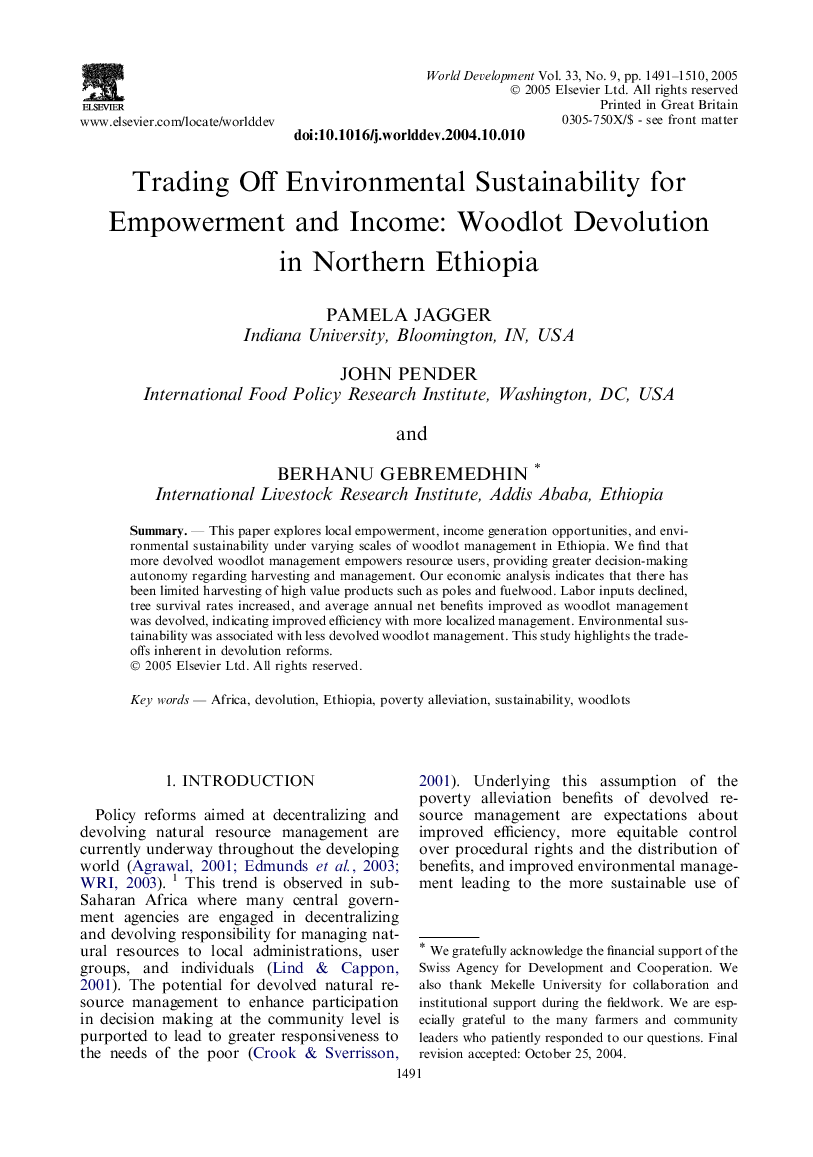| Article ID | Journal | Published Year | Pages | File Type |
|---|---|---|---|---|
| 10486520 | World Development | 2005 | 20 Pages |
Abstract
This paper explores local empowerment, income generation opportunities, and environmental sustainability under varying scales of woodlot management in Ethiopia. We find that more devolved woodlot management empowers resource users, providing greater decision-making autonomy regarding harvesting and management. Our economic analysis indicates that there has been limited harvesting of high value products such as poles and fuelwood. Labor inputs declined, tree survival rates increased, and average annual net benefits improved as woodlot management was devolved, indicating improved efficiency with more localized management. Environmental sustainability was associated with less devolved woodlot management. This study highlights the trade-offs inherent in devolution reforms.
Related Topics
Social Sciences and Humanities
Economics, Econometrics and Finance
Economics and Econometrics
Authors
Pamela Jagger, John Pender, Berhanu Gebremedhin,
